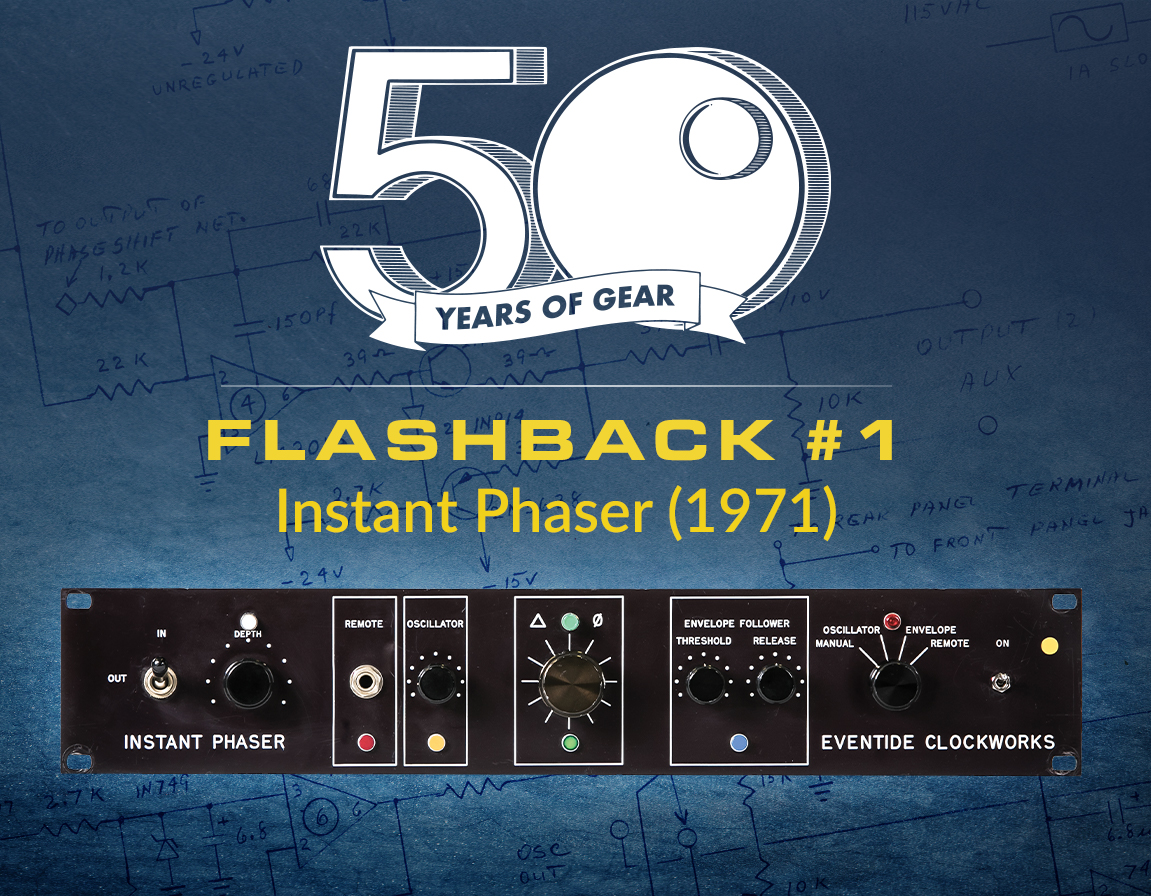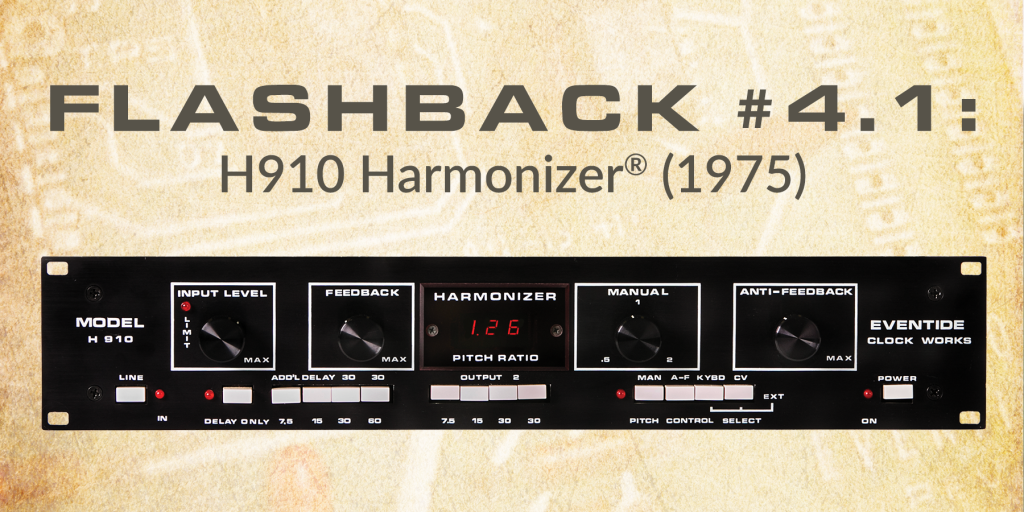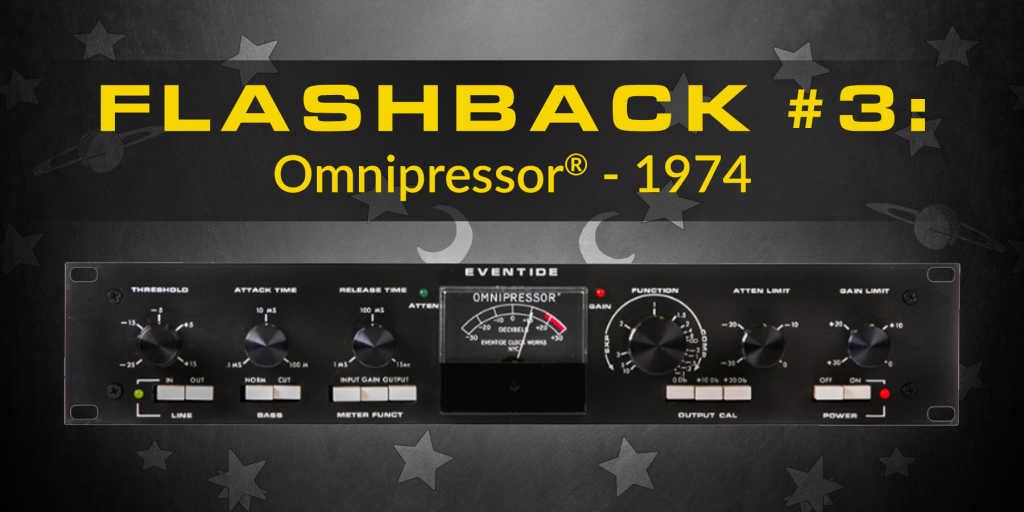
The PS 101 Instant Phaser
In 1971, Eventide Clockworks began production of what would become pro audio’s first rack-mount effects unit, the PS 101 Instant Phaser. Here’s how the original user manual introduced this novel device:

Originally purchased for its phasing effect (the classic swishy drum ‘wash’ on Led Zeppelin’s “Kashmir”? – that’s the Eventide Instant Phaser), Eventide’s User Manual suggested its capacity as a utility device. We coined the phrase “pseudo-stereo” to describe the Instant Phaser’s ability to spread a mono image across the stereo field. Most studios installed multiple boxes because engineers began using them to enhance the stereo image on everything.

What New Features Could an Effects Box Include?
The Instant Phaser introduced some new concepts including the notion of using the “Envelope” of the signal to drive the sweeping effect or using a “Control Voltage” (the Mu-Tron Phaser incorporated these features in 1972). It also featured two “decorrelated outputs”. Fifty years down the road, these concepts are SOP, but we did it first.
What Should We Call It?
Of course, groundbreaking work always has its consequences. In the days of tape flanging, audio pros used the terms phasing and flanging interchangeably. We named this new electronic effect box the “phaser” to distinguish it from the tape effect since the tape effect results from a differential time delay and the phaser doesn’t use time delay at all but rather a series of analog all pass filters. And, admittedly, our love of Star Trek was a factor. The ripples of that naming decision persist to this day.
From the “There’s no grudge like an old grudge” department:
And Not Just in the Studio!
Back in the day, PA systems had amps, mics, speakers, consoles, and little else. The Instant Phaser was one of the first effects boxes used live. Here it sits, duck taped, on top of a 1745 Digital Delay Line at a Jefferson Airplane concert in 1972 with Jorma, Grace, and Papa John.

And here it is, in a proper small rack case, at a Led Zeppelin concert at Madison Square Garden (circa 1973). Ah, progress!

Emulating that Special Sound
In 2018, we released a faithful emulation of the box, the Instant Phaser MK II plug-in. Check out this video to learn about the challenges of nailing the sound of certain analog gear.
Magic Shop Owner, Steve Rosenthal, points out that, duh, no two Instant Phasers sounded quite alike:
Fun with the Plug
When we released the Instant Phaser plug-in we threw down the “Itchycoo Challenge”:
Have a listen to these other creative entries to the Challenge.
Instant Phaser Deep Dive
Visit the Instant Phaser legacy page and check out our blog on the difference between phasing & flanging.
Up next, we take a look at the DDL 1745 — the first digital audio device
Legendary Audio Pros Deep Dive Gear Club Podcast
Episode #3: The Road to the Magic Shop with Steve Rosenthal Part 1
Episode #15: Capture the Moment with William Wittman Part I
Check out our previous flashbacks!
- Flashback #1: The Instant Phaser
- Flashback #2.1: The DDL 1745 Delay
- Flashback #2.2: The DDL 1745A Delay
- Flashback #2.3: The DDL 1745M Delay
- Flashback #3: The Omnipressor®
- Flashback #4.1: The H910 Harmonizer®
- Flashback #4.2: H910 Harmonizer® — The Product
- Flashback #4.3: H910 Harmonizer® — “Minds Blown”
- Flashback #5: FL 201 Instant Flanger
- Flashback #6: HM80 — The Baby Harmonizer®
- Flashback #7.1: The H949 Harmonizer®
- Flashback #7.2: H949 Harmonizer® — The New One
- Flashback #7.3: H949 Harmonizer® — Bending, Stretching, and Twisting Time
- Flashback #8: H969 Harmonizer®
- Flashback #9.1: Broadcast
- Flashback #9.2: Dump & Go – The Profanity Delay
- Flashback #10: Thinking Outside the Black Box


